Founder Alison Wright recently joined an Executive Leadership course with the National Outdoor Leadership School (NOLS). For more information on outdoor and leadership education opportunities at NOLS, check out their website here. Photos by Lynn Petzold, Rick Rochelle, and Alison Wright.
“If we can get to the pass before weather hits, everything will be smooth from there.”
Along with my teammates, I nodded in agreement with Chad, our designated leader for the day. We were a crew of eight – four students, one instructor, and three llamas – and we were the “out front” group on the fourth day of our Executive Leadership course in the Wind River mountains of Wyoming, courtesy of the National Outdoor Leadership School (NOLS). Less than a quarter mile behind us came the second half of our expedition – another four students, a second instructor, and two more llamas. Partway up an 11,000 ft pass from which we’d drop down toward Leg Lake, Chad, Ross, James, Rick and I adjusted our packs, checked our llamas’ panniers, and kept climbing.
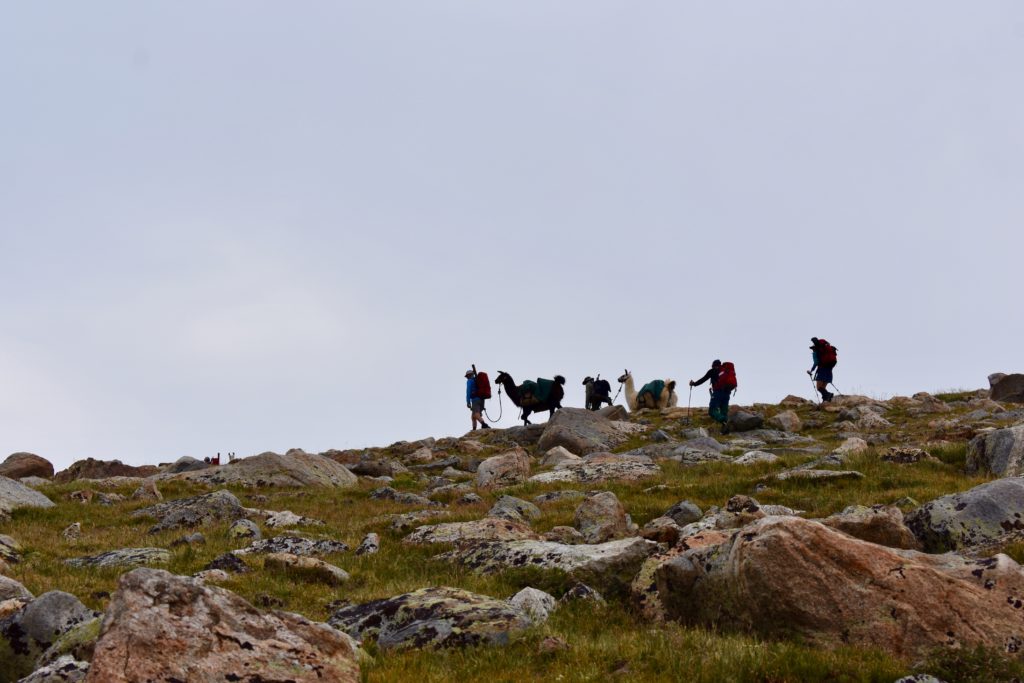
The top of the pass was cold, and our instructor Rick convinced everyone to gather for a hasty selfie. Seeking respite from the wind and drizzle, we continued on, down the back side of the pass and into a large boulder field that swept across the mountain and extended down toward treeline and the green and blue alpine landscape below us. A sucker for expansive views, I felt overcome with gratitude for the chance to be in this moment, with this group of people. It was a surprising sentiment for me – an introvert who tends to make friends slowly – and I continued in the sweeper position at the back of my group, partly to take some space to gather my emotions.
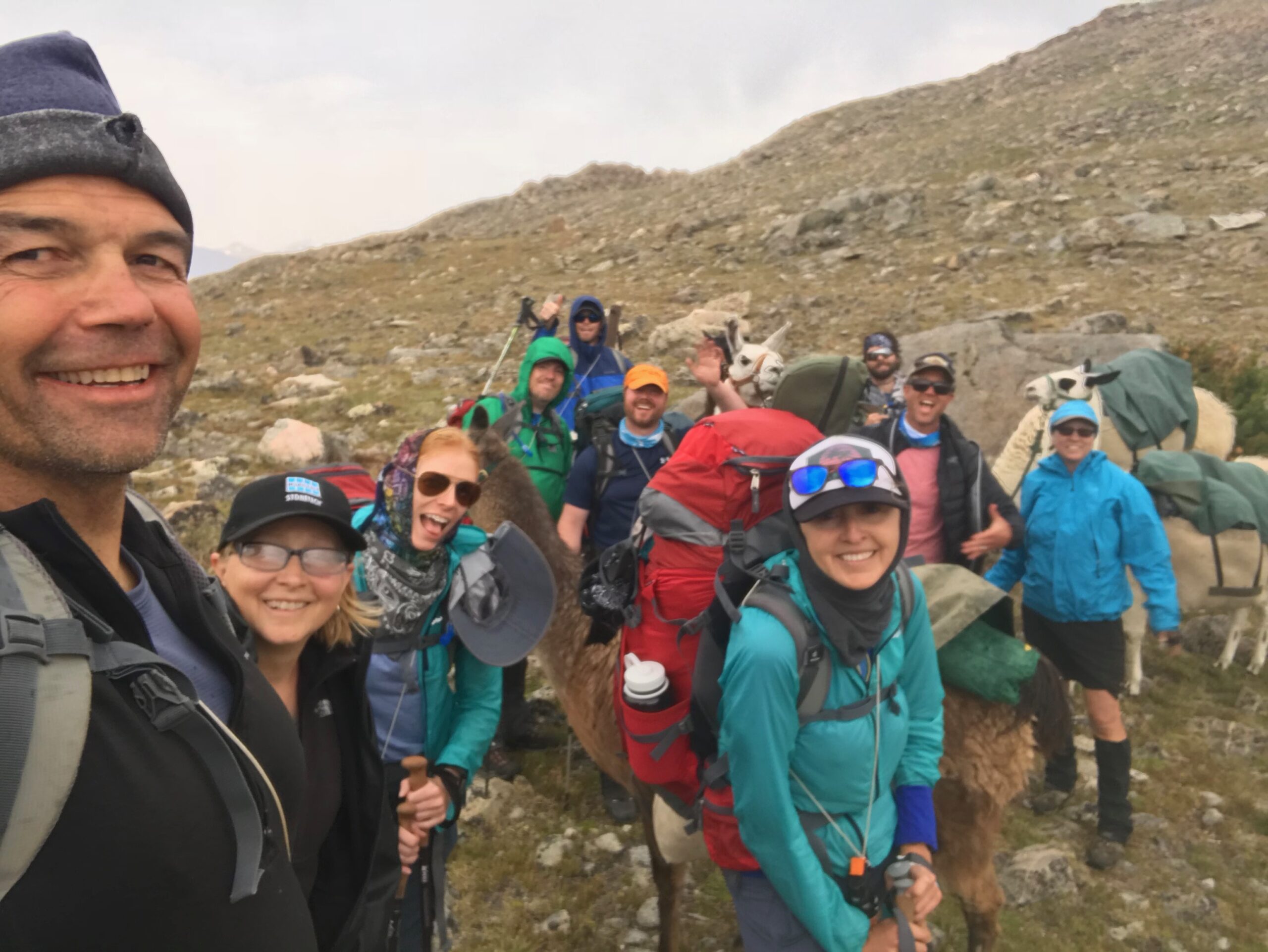
And then things got real. The afternoon was not going to be a smooth one. We reached the top of a snowfield that wasn’t supposed to be there – one that Rick and Lynn, our exceptional instructors, hadn’t expected. As we made our way through a chunky field of boulders to a spacious ledge from which we could survey what we were facing, Bridger the llama didn’t quite make a jump. Though it could have been much worse (a broken leg, or two), watching Bridger splay himself across the rock and seeing the new gashes on his hind legs added a deeper sense of chaos and uncertainty among the group.
We eventually reached our intended camp for the night, but what it took to arrive there perfectly encapsulates some of the key lessons of this trip. And for me, as founder of The Cairn Project, the day was one that reconnected me to all of the reasons my organization has the mission it does.
It was an intense and at times harried sequence of events: a long pause of considering different approaches down and the possibility of turning back; unloading llamas of their panniers and saddles; a rapid-fire self arrest refresher course; a multi-stage caravan of gear, people, and llamas down the snowfield; and once everyone was safely off the snow, the most challenging quarter mile of route finding that we’d encounter over the six day trip, through continuing boulder fields, drop offs, and non-llama-friendly terrain. We arrived at camp simultaneously triumphant and exhausted. During the evening debrief and later that night in my sleeping bag, where I was awoken by late night rain on the tent I shared with Brittny and Janet, some key takeaways crystallized:
Outdoor expeditions foster inclusive and collaborative communication. When you arrive in an unfamiliar landscape with a group of relative strangers, every word counts. Expressions of gratitude and appreciation are necessary to build rapport with your team. Trust is strengthened through curiosity in your expedition crew – getting to know each other as people helps you to become better team members as you continue across the land. And because everyone has to succeed for anyone to succeed, creating a safe space in which all can each express how they feel and what they need is critical.
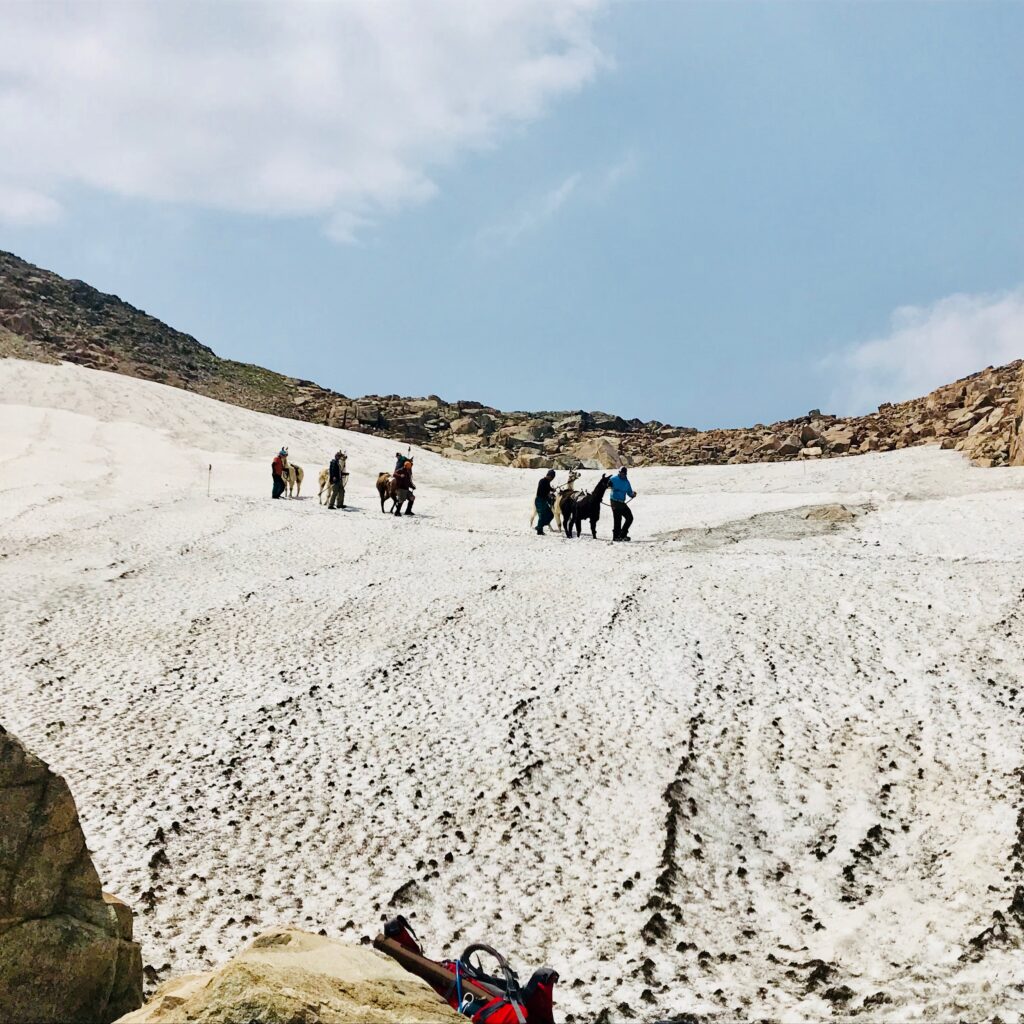
Growth happens when you step beyond your comfort zone. Our student group – Chad, Brittny, James, Janet, Kyle, Todd, Ross and me – were varied in our outdoor experience before this course. Some of us had spent extended time in the backcountry, and for a couple of us, this was our first time backpacking. But all of us were pushed beyond our comfort zone in one way or another, whether by having to set up a tent with difficult-to-master knots or to moderate our typical way of doing things to accommodate the skill set of the wider group. It’s likely that the snowfield pushed each of us in unique and personal ways. And that’s the magic of the “expedition behavior” curriculum: no matter where you are in the lesson plan, there’s always more to learn and integrate.
Living simply lets your authenticity shine, and connects you with people who love you for you. From frank conversations about pooping in the woods to the pungent reality of no showers, communal backcountry kitchens, and shared tents for days on end, the bottom line is this: backpacking in a group forcibly strips you of the pretenses of front country life. Whether it happens on the first day or further into the trip, living outdoors in a group draws out your true self. And because you’re relying on each other to make food, stay warm and dry, and eventually make it back to the trailhead in one piece, you will all find ways to conjure admiration, respect, and maybe even love for your team. These might be people with whom you would never intentionally socialize in the “real world,” and yet the stripped-down simplicity of backpacking will uncover commonalities and vulnerability that are guaranteed to impart deep feelings of empathy, connection, and oneness.
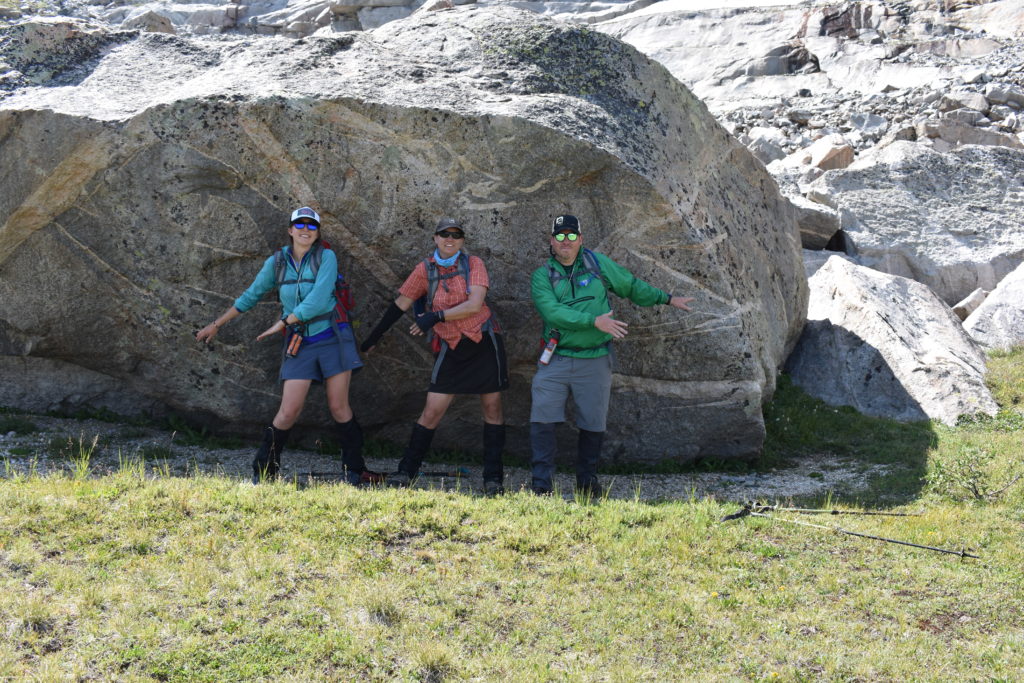
Our loop through the Winds was a textbook outdoor expedition, but the truth is that we returned to the trailhead steeped in lessons to bring home to our day-to-day expeditions: work, families, and personal endeavors.
By the time we arrived back at the Worthen parking lot to break down our gear and board a NOLS school bus back to Lander, we had gelled into a dynamic but unified group. Predictably, the hardest moments of the trip were the ones we most relished retelling to each other. Rick and Lynn’s expertise in helping us debrief each day and reflect on how we could have worked better together will stick with each of us as we transition back into our work lives and our relationships with friends and loved ones. Our loop through the Winds was a textbook outdoor expedition, but the truth is that we returned to the trailhead steeped in lessons to bring home to our day-to-day expeditions: work, families, and personal endeavors.
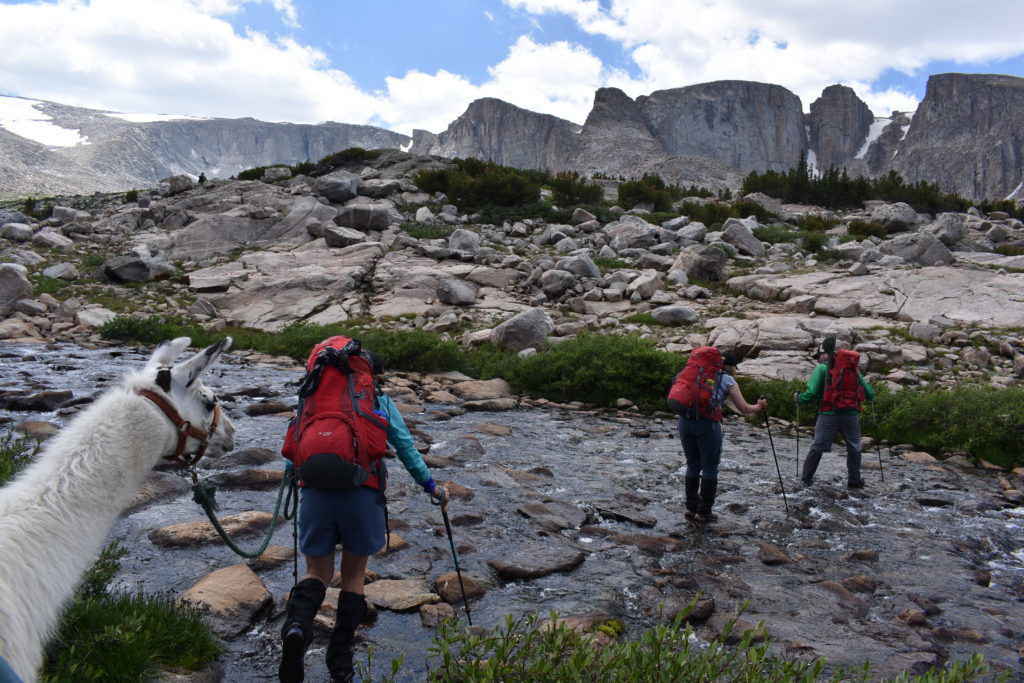
For me, as one of three female students in this group, these lessons feel pertinent and necessary. I’m grateful to have had the chance to actively explore them again, and grateful that my previous outside endeavors equipped me to glean what I did from the experience. I arrive home in San Francisco feeling only deeper commitment to one of my biggest expeditions – The Cairn Project – and to ensuring that more young women have the opportunity to access the singular curriculum that outdoor adventure offers. My days in the Winds leave me with images and memories that will push to me lean deeper into my passions and pursuits. What I learned and relearned about working effectively as a team has applications in so many facets of my life “After NOLS.”
Oh, and I now know how to make cheesy biscuits at 10,000 feet on a WhisperLite stove – thanks for the tutorial, Lynn!
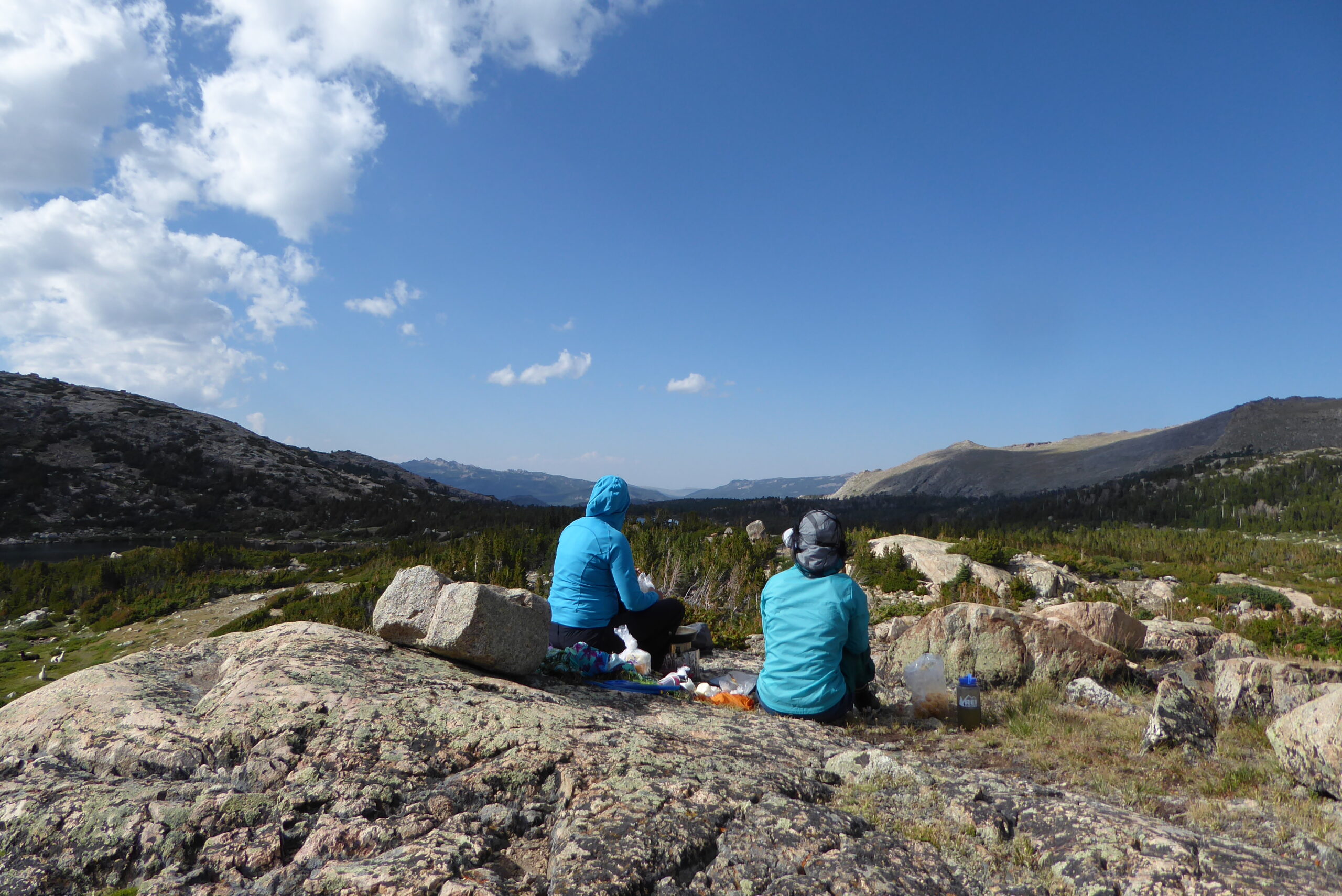
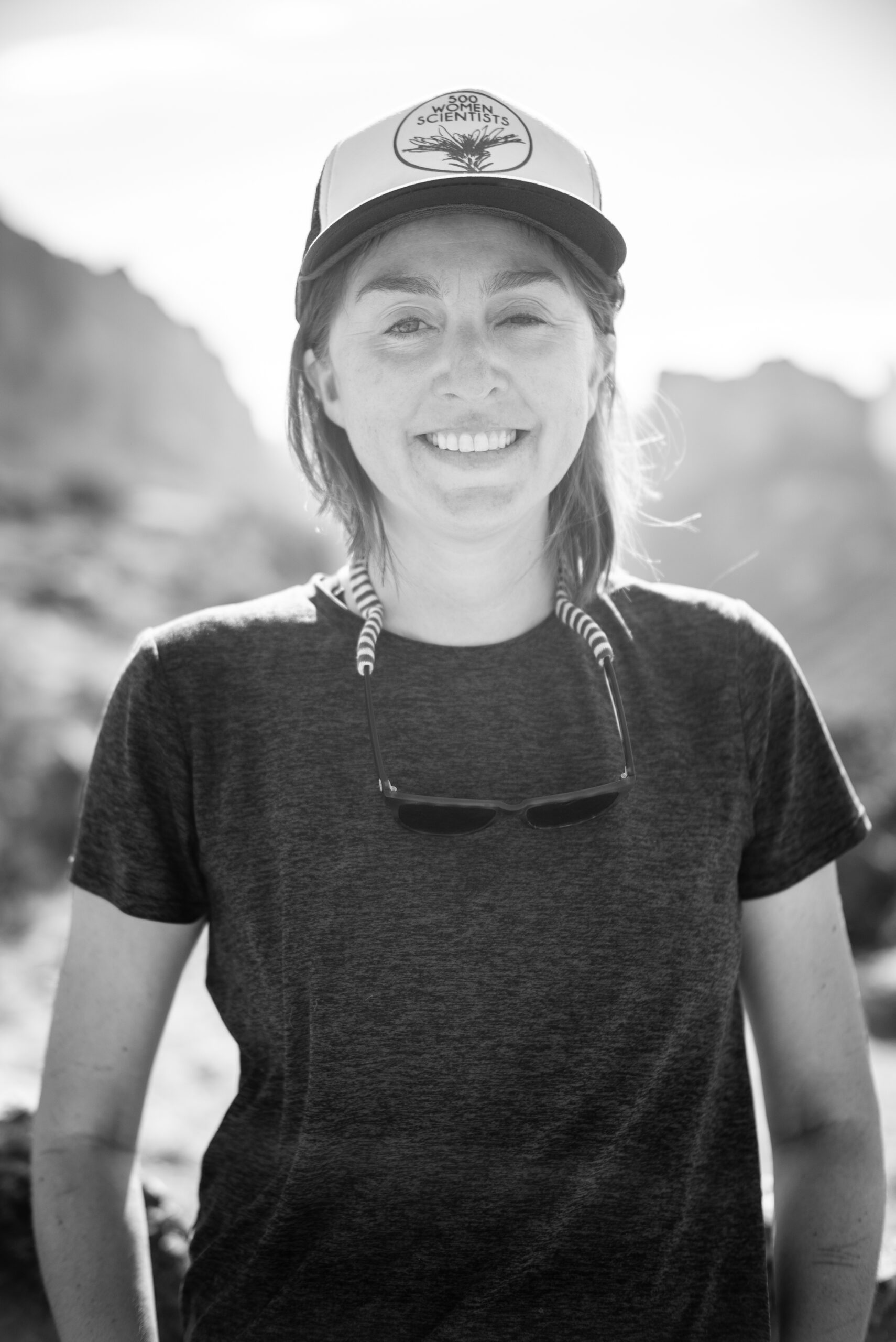
Alison Wright
A San Francisco native, Alison grew up in a family that enjoyed the privilege of outdoor access – many memories were made in California’s iconic mountain and coastal landscapes. Alison has spent her career in the philanthropic sector, advancing initiatives for justice and empowerment internationally and closer to home. In addition to her leadership at The Cairn Project, she directs the Environmental Defenders Collaborative at Global Greengrants Fund, channeling support to frontline environmental activists around the world.
